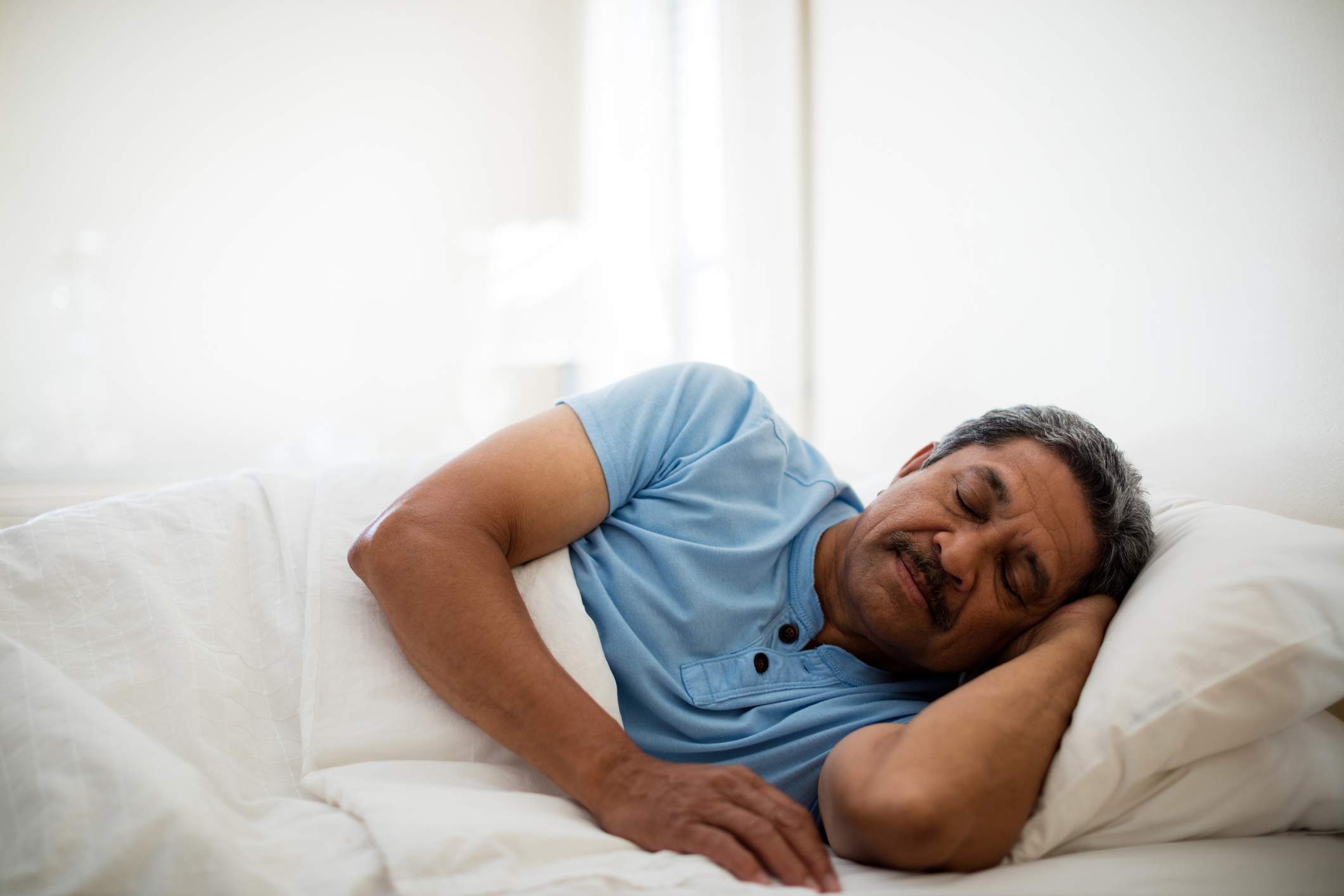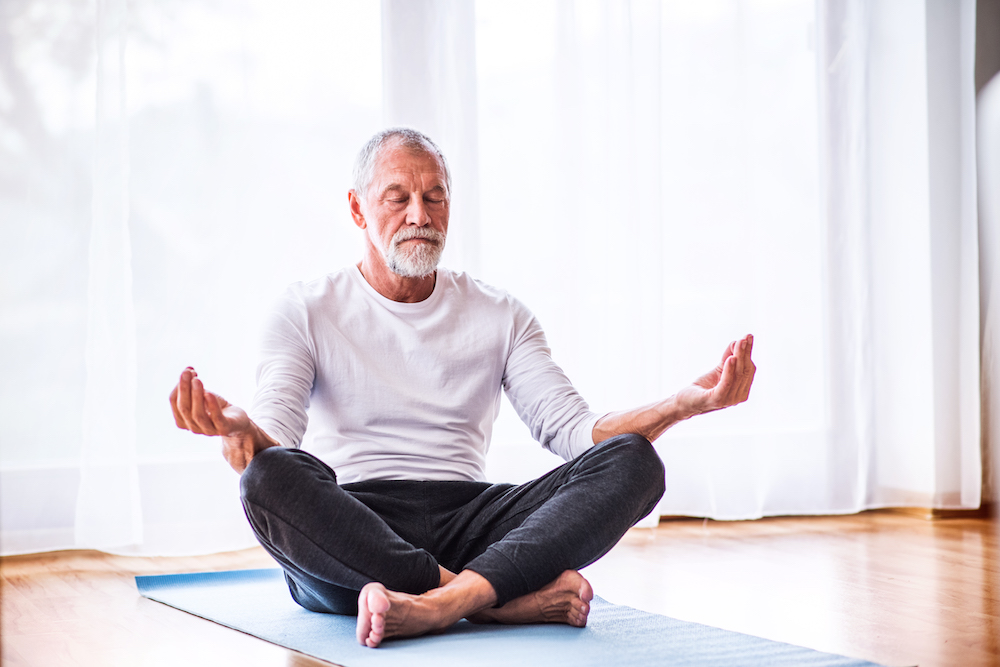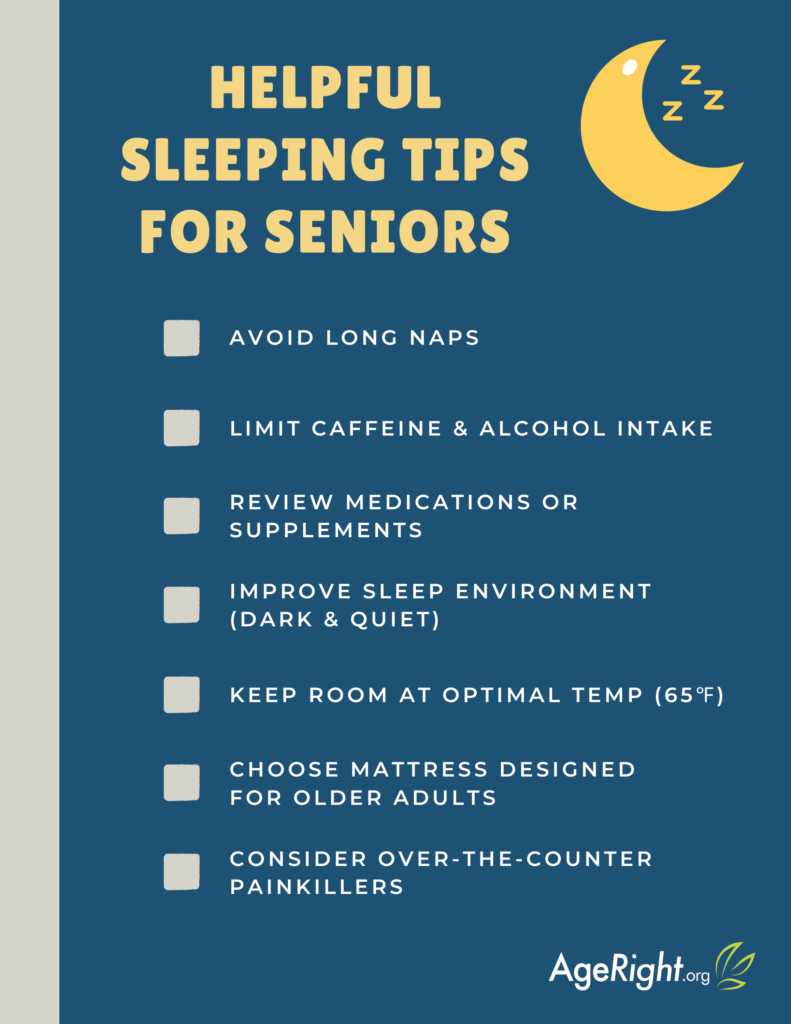Are you having difficulty getting a full night’s sleep? As we age, we experience physical and mental changes that can affect how much shut-eye we get. It’s important to pinpoint what’s keeping you awake at night so you can make adjustments to your bedtime schedule and rituals. Other changes, such as purchasing a mattress designed for older adults can have a positive impact.
Senior Sleep Problems
It’s generally recommended that seniors get 7 or 8 hours of sleep every night, which is the same for middle-aged adults. However, older adults often experience various kinds of sleep problems that preclude them from getting their optimum sleep.
Many older adults also report more severe insomnia than younger people. Experts have developed theories and treatments to try and combat severe insomnia among older adults, including light exposure treatment for sleep phase syndrome. This includes bright light therapy that, in some cases, might affect how much sleep seniors get. Tell your doctor if you suffer from severe insomnia.
Top Causes for Difficulty Sleeping
While there is no one root cause of sleep deprivation among seniors, here are some of the most common underlying causes for senior sleep problems:
Top Sleeping Tips for Seniors
If your sleep issues are less severe than chronic long-lasting insomnia (which require medical attention), these tips may help you get a good night’s sleep and avoid wakeful nights:
- Learn how age changes sleep: As we age, our bodies produce fewer growth hormones and melatonin that help us sleep. Over time this can lead to less deep sleep during the sleep cycle.
- Figure out your underlying causes for sleeplessness: While aging can affect your sleep patterns, don’t assume it’s just “normal aging”. Ask your doctor if you have concerns.
- Review new prescriptions with your doctor (and supplements) which could be contributing to your sleeplessness because of ingredients like caffeine or other stimulants. And make sure you take all of your medications correctly, as prescribed.
- Try visiting a sleep expert, who knows the signs and symptoms of common conditions that could be affecting your sleep quality, such as stress, depression or anxiety, or chronic health conditions.
- Follow a regular bedtime schedule: Try to go to sleep and wake up at the same time daily, even on weekends and holidays. This allows your body to get into a rhythm and know when it’s time to shut down and boot up. Keep in mind, it’s very common for older adults to go to sleep earlier and wake up earlier compared to younger adults. This isn’t a problem at all.
- Minimize your daytime “cat naps” to 20 minutes. Napping too much can prevent you from sleeping well at night.
- Do not consume caffeine and alcohol at night. Avoid caffeine up to 8 hours before bedtime, and avoid alcohol after dinner.
- Improve your sleep environment. Try to fall asleep in a dark and quiet environment. You can have some ambient light or low-volume sound machines, but it’s best to avoid harsh lighting and loud noises that can keep you up at night.
- Set an optimal room temperature. Experts generally recommend keeping the room at about 65°F (18°C).
- Buy a new mattress designed for older adults. They provide extra support to help you sleep better.
- Consider OTC pain medicines. If pain is keeping you up at night, talk to your doctor about possible over-the-counter (OTC) remedies. They might not prevent you from waking up, but they can help you ease back into sleep.
- De-stress if you are feeling anxious or low, with mild exercise such as yoga. Mindfulness meditation techniques can also help. Sometimes a simple walk outdoors to breathe in that wonderful fresh air can be the therapeutic balm you need! [5 Excellent Reasons Seniors Should Spend Time Outdoors]
While aging is a part of life, don’t let it affect your ability to get a good night’s sleep!
You may also be interested in my blog post:
How Deep Sleep Cleans the Brain and May Prevent Alzheimer’s
Source link: https://ageright.org/2020/12/30/better-sleep-as-you-age/ by at ageright.org






